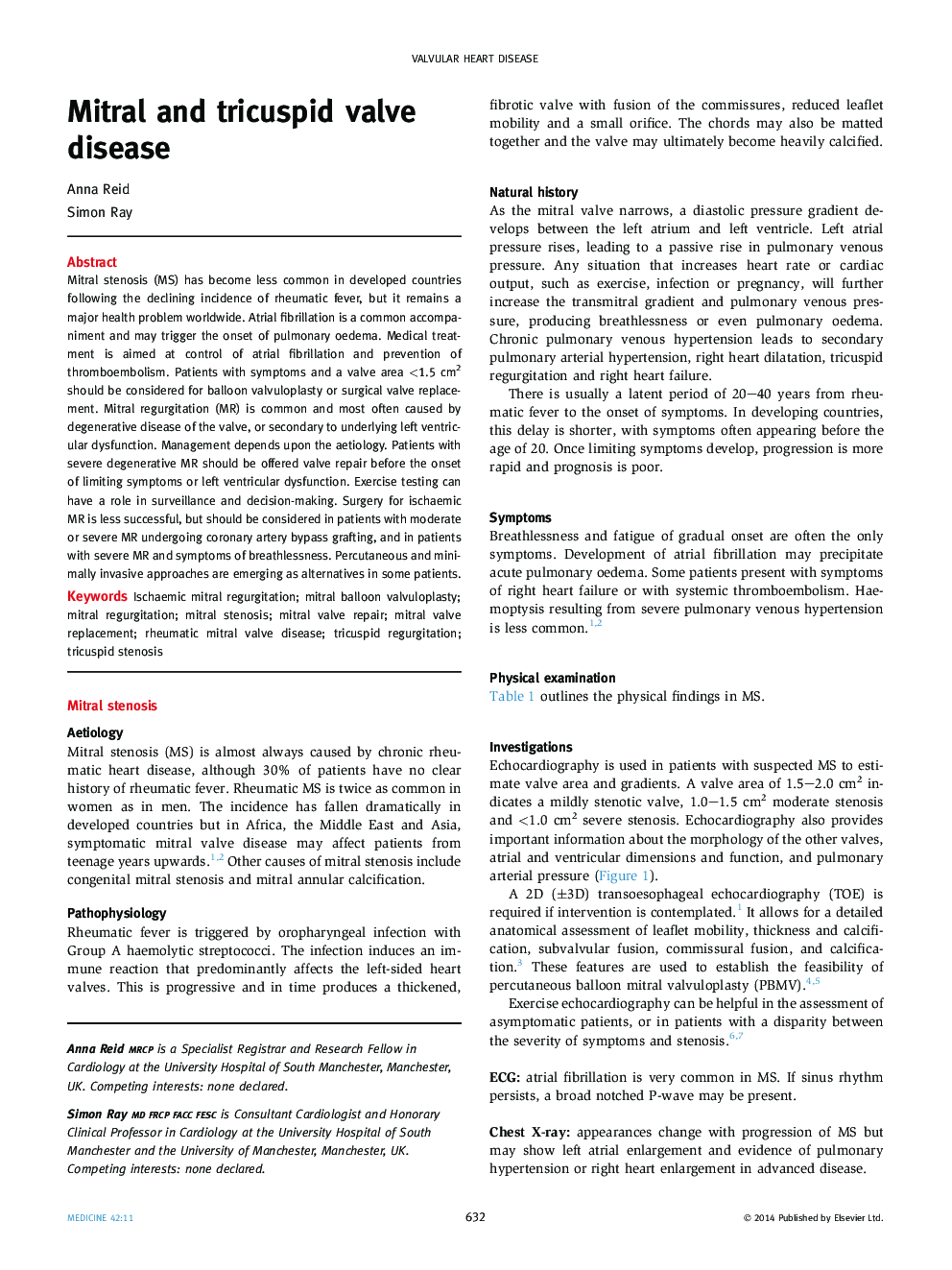| Article ID | Journal | Published Year | Pages | File Type |
|---|---|---|---|---|
| 3806863 | Medicine | 2014 | 6 Pages |
Mitral stenosis (MS) has become less common in developed countries following the declining incidence of rheumatic fever, but it remains a major health problem worldwide. Atrial fibrillation is a common accompaniment and may trigger the onset of pulmonary oedema. Medical treatment is aimed at control of atrial fibrillation and prevention of thromboembolism. Patients with symptoms and a valve area <1.5 cm2 should be considered for balloon valvuloplasty or surgical valve replacement. Mitral regurgitation (MR) is common and most often caused by degenerative disease of the valve, or secondary to underlying left ventricular dysfunction. Management depends upon the aetiology. Patients with severe degenerative MR should be offered valve repair before the onset of limiting symptoms or left ventricular dysfunction. Exercise testing can have a role in surveillance and decision-making. Surgery for ischaemic MR is less successful, but should be considered in patients with moderate or severe MR undergoing coronary artery bypass grafting, and in patients with severe MR and symptoms of breathlessness. Percutaneous and minimally invasive approaches are emerging as alternatives in some patients.
